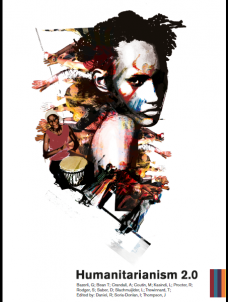
This report was prepared by the Humanitarianism 2.0 project through funding from the UK Arts and Humanities Research Council.
A diversity of practices have emerged in the last five years that have permitted new forms of present tense responses to crisis – from Facebook involvement in the Arab Spring, to texts and tweets that supported the mapping of the Haiti earthquake, to the digitisation of the Colombian city of Medellín, to controversies about the relation between twitter and the UK 2011 riots.
Humanitarianism 2.0 seeks to link and learn from these diverse but related initiatives by providing a forum through which pioneers of web 2.0 technologies can be brought into productive dialogue with experts in humanitarian relief. H20 will bring together an interdisciplinary team who have already pioneered responses to situations of unrest, to explore the opportunities, potentials and questions that arise when new forms of social, interactive and user-led technologies are applied to situations of humanitarian crisis.
Questions asked of main project:
1. How have new social media technologies been used in contemporary war, disaster zones or situations of upheaval?
2. How might different technological responses learn from each other?
3. What insights do these new forms of networking and interaction give to those organisations working in humanitarian zones?
4. What new technological responses might be appropriate in approaches to international carein future humanitarian crises?
Project partners: AHRC, The University of Manchester, Birmingham City University.
Download the full PDF publication here.
If you are interested in writing a GP Response to the report please contact our Review’s Editor at: richard.murphy [@] durham.ac.uk. GP Responses are short (up to 1500 words) opinion pieces that address entire, or parts of, recent publications and reports. They are published on the Global Policy website to add to ongoing debates.